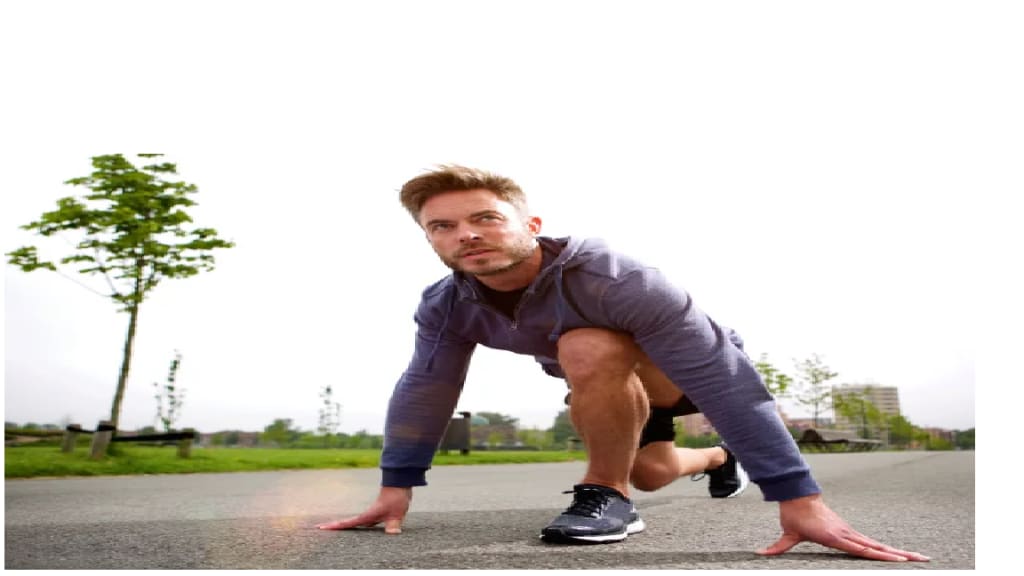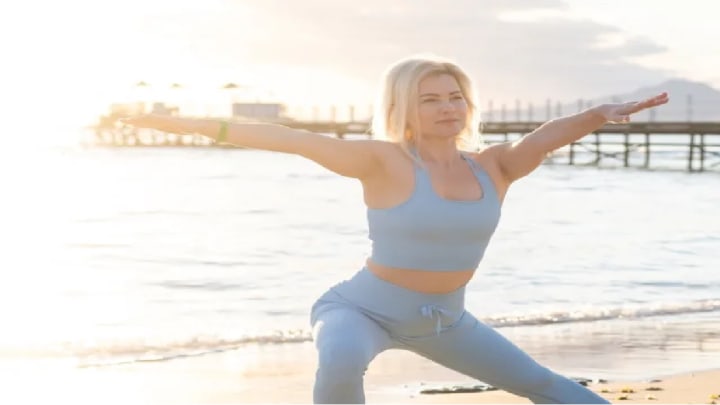Content warning
This story may contain sensitive material or discuss topics that some readers may find distressing. Reader discretion is advised. The views and opinions expressed in this story are those of the author and do not necessarily reflect the official policy or position of Vocal.
5 Fitness Habits That Are Destroying Your Body After 40
5 Fitness Habits That Are Destroying Your Body After 40

While it's important to maintain a healthy and active lifestyle as you age, certain fitness habits may have negative effects on your body, especially after the age of 40. Here are five fitness habits that could potentially be harmful:
Overtraining: Pushing your body to the extreme without adequate rest and recovery can lead to overuse injuries, muscle imbalances, and chronic fatigue. As you age, your body may take longer to recover, so it's crucial to listen to your body and allow for proper rest days.
Ignoring proper form: Performing exercises with incorrect form can place unnecessary stress on your joints, leading to joint pain, strains, and overuse injuries. It's important to learn proper technique and focus on maintaining good form while exercising.
Neglecting flexibility and mobility training: As you age, your muscles and joints may become stiffer, leading to decreased flexibility and mobility. Neglecting stretching and mobility exercises can increase the risk of muscle strains, limited range of motion, and postural imbalances. Incorporate regular stretching and mobility work into your fitness routine to maintain flexibility.

Excessive cardio and neglecting strength training: While cardiovascular exercise is beneficial, excessive cardio without incorporating strength training can lead to muscle loss and a decrease in bone density. Strength training helps maintain muscle mass, bone density, and overall functional strength. Aim for a balanced fitness routine that includes both cardiovascular exercise and strength training.
Not listening to your body: As you age, your body's needs and limitations may change. Ignoring pain, discomfort, or signs of overexertion can lead to serious injuries. It's essential to pay attention to your body and modify your workouts accordingly. If something doesn't feel right, consult with a healthcare professional or fitness expert.
Remember, everyone is different, and it's important to consult with a healthcare professional or a certified fitness trainer who can provide personalized advice based on your specific needs, goals, and health condition
Overtraining: Overtraining occurs when you exceed your body's ability to recover from intense exercise. As you age, your body may require more time to repair and rebuild tissues. Ignoring proper rest and recovery can lead to overuse injuries such as tendinitis, stress fractures, and muscle strains. It can also result in chronic fatigue, decreased immune function, hormonal imbalances, and mood disturbances. It's important to find a balance between challenging workouts and allowing your body enough time to rest and recuperate.
Ignoring proper form: Performing exercises with incorrect form places excessive stress on your joints, tendons, and ligaments. Over time, this can lead to joint pain, strains, and overuse injuries. Common mistakes include using too much weight, lifting with your back instead of your legs, rounding your back during exercises, and performing repetitive movements with poor alignment. Learning proper form from a qualified fitness professional and focusing on maintaining good technique can help prevent injuries.
Neglecting flexibility and mobility training: As you age, your muscles and joints naturally become stiffer, and your range of motion may decrease. Neglecting flexibility and mobility training can lead to muscle imbalances, postural problems, and a higher risk of injury. Regular stretching, mobility exercises, and activities like yoga or Pilates can help improve joint flexibility, maintain muscle elasticity, and enhance overall movement quality.
Excessive cardio and neglecting strength training: Cardiovascular exercise is important for heart health and overall fitness, but solely focusing on cardio while neglecting strength training can have negative consequences, especially as you age. Muscle mass naturally declines with age, and this loss can accelerate after 40. Strength training exercises, such as weightlifting or resistance training, help maintain and build muscle, increase bone density, improve balance, and support overall functional strength. It's important to incorporate both cardiovascular exercise and strength training into your routine to achieve a well-rounded fitness regimen.
Not listening to your body: As you age, your body may have different needs and limitations compared to when you were younger. Ignoring pain, discomfort, or signs of overexertion can lead to serious injuries. It's crucial to pay attention to your body's signals and modify your workouts accordingly. This might involve reducing the intensity or duration of certain exercises, using modifications or adaptations for certain movements, or seeking guidance from healthcare professionals or fitness experts who can provide personalized advice based on your unique circumstances.
Ultimately, it's essential to prioritize your health and safety when engaging in any fitness regimen, especially as you get older. Understanding and respecting your body's limits, incorporating a balanced approach to exercise, and seeking guidance from professionals can help you maintain a healthy and sustainable fitness routine as you age.
About the Creator
Enjoyed the story? Support the Creator.
Subscribe for free to receive all their stories in your feed. You could also pledge your support or give them a one-off tip, letting them know you appreciate their work.






Comments
There are no comments for this story
Be the first to respond and start the conversation.